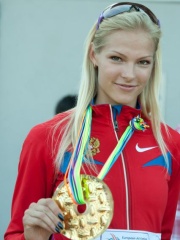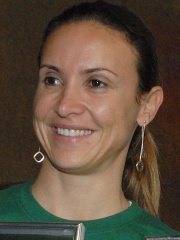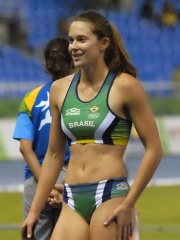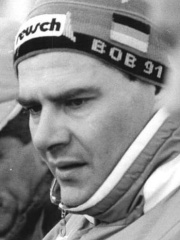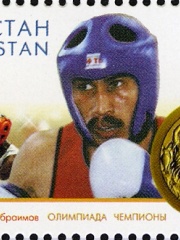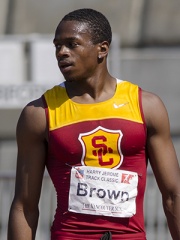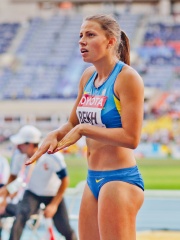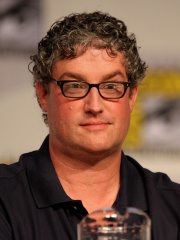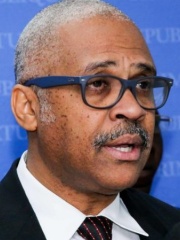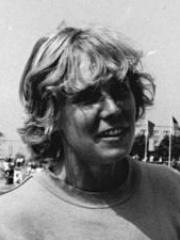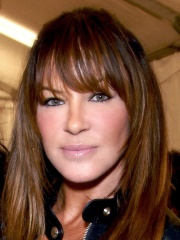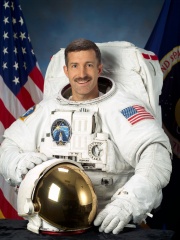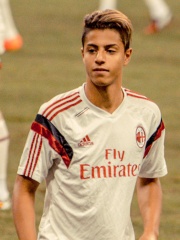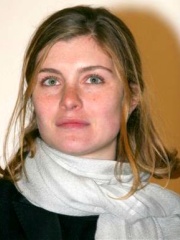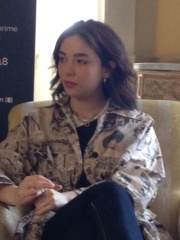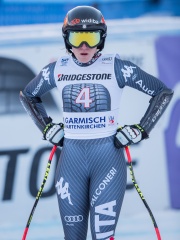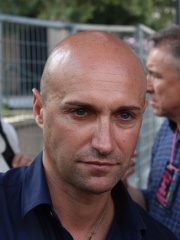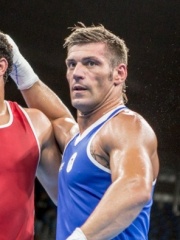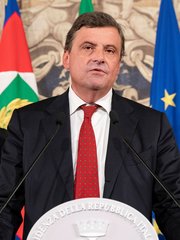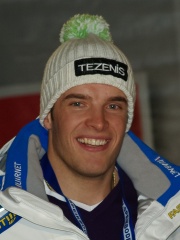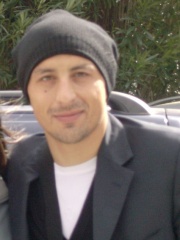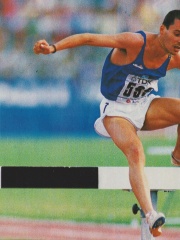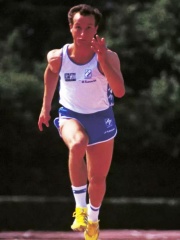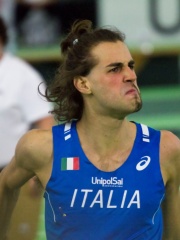Athlete
Mauro Numa
1961 - today
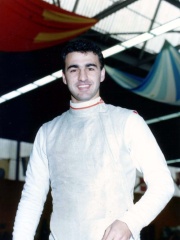
 Mauro Numa
Mauro Numa
Mauro Numa (born 8 November 1961 in Mestre) is an Italian fencer and one of the strongest during the 1980s.His career started very early and in 1979, at 18, he was included in the Foil's Italian Team. In 1980 Numa could not compete at the Moscow Olympic Games due to the boycott. Read more on Wikipedia
His biography is available in 16 different languages on Wikipedia (up from 15 in 2024). Mauro Numa is the 3,066th most popular athlete (down from 3,058th in 2024), the 4,586th most popular biography from Italy (down from 4,576th in 2019) and the 119th most popular Italian Athlete.
Memorability Metrics
Page views of Mauro Numa by language
Among Athletes
Among athletes, Mauro Numa ranks 3,066 out of 6,025. Before him are Darya Klishina, Maurren Maggi, Kenth Eldebrink, Julius Kariuki, Fabiana Murer, and Wolfgang Hoppe. After him are Carla Sacramento, Yermakhan Ibraimov, Ximena Restrepo, Vanja Gesheva-Tsvetkova, Aaron Brown, and Maryna Bekh-Romanchuk.
Most Popular Athletes in Wikipedia
Go to all RankingsDarya Klishina
1991 - Present
HPI: 46.43
Rank: 3,060
Maurren Maggi
1976 - Present
HPI: 46.42
Rank: 3,061
Kenth Eldebrink
1955 - Present
HPI: 46.42
Rank: 3,062
Julius Kariuki
1961 - Present
HPI: 46.42
Rank: 3,063
Fabiana Murer
1981 - Present
HPI: 46.41
Rank: 3,064
Wolfgang Hoppe
1957 - Present
HPI: 46.41
Rank: 3,065
Mauro Numa
1961 - Present
HPI: 46.40
Rank: 3,066
Carla Sacramento
1971 - Present
HPI: 46.40
Rank: 3,067
Yermakhan Ibraimov
1972 - Present
HPI: 46.40
Rank: 3,068
Ximena Restrepo
1969 - Present
HPI: 46.39
Rank: 3,069
Vanja Gesheva-Tsvetkova
1960 - Present
HPI: 46.39
Rank: 3,070
Aaron Brown
1992 - Present
HPI: 46.39
Rank: 3,071
Maryna Bekh-Romanchuk
1995 - Present
HPI: 46.38
Rank: 3,072
Contemporaries
Among people born in 1961, Mauro Numa ranks 853. Before him are Larbi El Hadi, Al Jean, Dan Frost, Jack Guy Lafontant, Anke Behmer, and Julius Kariuki. After him are Gabriel Oprea, Ebrahim Hatamikia, Izaskun Bilbao Barandica, Robin Antin, Daniel C. Burbank, and Stéphane Richard.
Others Born in 1961
Go to all RankingsLarbi El Hadi
SOCCER PLAYER
1961 - Present
HPI: 46.49
Rank: 848
Al Jean
WRITER
1961 - Present
HPI: 46.47
Rank: 849
Dan Frost
CYCLIST
1961 - Present
HPI: 46.47
Rank: 850
Jack Guy Lafontant
POLITICIAN
1961 - Present
HPI: 46.46
Rank: 851
Anke Behmer
ATHLETE
1961 - Present
HPI: 46.45
Rank: 852
Julius Kariuki
ATHLETE
1961 - Present
HPI: 46.42
Rank: 853
Mauro Numa
ATHLETE
1961 - Present
HPI: 46.40
Rank: 854
Gabriel Oprea
POLITICIAN
1961 - Present
HPI: 46.40
Rank: 855
Ebrahim Hatamikia
FILM DIRECTOR
1961 - Present
HPI: 46.39
Rank: 856
Izaskun Bilbao Barandica
POLITICIAN
1961 - Present
HPI: 46.39
Rank: 857
Robin Antin
ACTOR
1961 - Present
HPI: 46.38
Rank: 858
Daniel C. Burbank
ASTRONAUT
1961 - Present
HPI: 46.38
Rank: 859
Stéphane Richard
BUSINESSPERSON
1961 - Present
HPI: 46.36
Rank: 860
In Italy
Among people born in Italy, Mauro Numa ranks 4,587 out of 5,161. Before him are Gianluca Farina (1962), Eluana Englaro (1970), Hachim Mastour (1998), Pieralberto Carrara (1966), Vittoria Puccini (1981), and Matilda De Angelis (1995). After him are Sofia Goggia (1992), Stefano Garzelli (1973), Clemente Russo (1982), Carlo Calenda (1973), Christof Innerhofer (1984), and Angelo Palombo (1981).
Others born in Italy
Go to all RankingsGianluca Farina
ATHLETE
1962 - Present
HPI: 46.46
Rank: 4,581
Eluana Englaro
CELEBRITY
1970 - 2009
HPI: 46.45
Rank: 4,582
Hachim Mastour
SOCCER PLAYER
1998 - Present
HPI: 46.45
Rank: 4,583
Pieralberto Carrara
ATHLETE
1966 - Present
HPI: 46.44
Rank: 4,584
Vittoria Puccini
ACTOR
1981 - Present
HPI: 46.42
Rank: 4,585
Matilda De Angelis
ACTOR
1995 - Present
HPI: 46.41
Rank: 4,586
Mauro Numa
ATHLETE
1961 - Present
HPI: 46.40
Rank: 4,587
Sofia Goggia
SKIER
1992 - Present
HPI: 46.39
Rank: 4,588
Stefano Garzelli
CYCLIST
1973 - Present
HPI: 46.39
Rank: 4,589
Clemente Russo
BOXER
1982 - Present
HPI: 46.39
Rank: 4,590
Carlo Calenda
POLITICIAN
1973 - Present
HPI: 46.34
Rank: 4,591
Christof Innerhofer
SKIER
1984 - Present
HPI: 46.33
Rank: 4,592
Angelo Palombo
SOCCER PLAYER
1981 - Present
HPI: 46.32
Rank: 4,593
Among Athletes In Italy
Among athletes born in Italy, Mauro Numa ranks 119. Before him are Pierpaolo Ferrazzi (1965), José Pinto (null), Francesco Panetta (1963), Andrea Parenti (1965), Gianluca Farina (1962), and Pieralberto Carrara (1966). After him are Donato Sabia (1963), Günther Huber (1965), Agostino Abbagnale (1966), Daniele Scarpa (1964), Nicola Vizzoni (1973), and Gianmarco Tamberi (1992).
Pierpaolo Ferrazzi
1965 - Present
HPI: 47.11
Rank: 113
José Pinto
HPI: 47.05
Rank: 114
Francesco Panetta
1963 - Present
HPI: 47.00
Rank: 115
Andrea Parenti
1965 - Present
HPI: 46.84
Rank: 116
Gianluca Farina
1962 - Present
HPI: 46.46
Rank: 117
Pieralberto Carrara
1966 - Present
HPI: 46.44
Rank: 118
Mauro Numa
1961 - Present
HPI: 46.40
Rank: 119
Donato Sabia
1963 - 2020
HPI: 46.25
Rank: 120
Günther Huber
1965 - Present
HPI: 46.23
Rank: 121
Agostino Abbagnale
1966 - Present
HPI: 46.22
Rank: 122
Daniele Scarpa
1964 - Present
HPI: 46.05
Rank: 123
Nicola Vizzoni
1973 - Present
HPI: 45.98
Rank: 124
Gianmarco Tamberi
1992 - Present
HPI: 45.87
Rank: 125
